What we mean when we talk about democracy

Recently, "democracy" has become a hot word in Bangladesh and beyond. The term derives from the ancient Greek language, which means "rule by the people" or "sovereignty rests with the people". Throughout history, democracy has taken various forms in different periods and under different circumstances. Nowadays, democracy has become a common value shared by all of humanity. There is, however, no one-size-fits-all model for democracy. "All roads lead to Rome," as the old saying goes. As an exchange of minds, I would like to share China's ideas and practices in pursuing democracy.
Democracy is an ideal that has always been cherished by the Communist Party of China (CPC) and the Chinese people. China is the largest developing country with a vast territory, a large population and limited resources per capita. China's unique national conditions determine its unique democratic system. Under the leadership of the CPC, China has developed the whole-process people's democracy, which implements the people's democratic dictatorship as the governing system and the people's congresses as the governing structure.
The multiparty cooperation and political consultation under CPC leadership has been upheld and improved. In Xinjiang, Xizang (Tibet) and some other places, the regional ethnic autonomy system is applied. The villagers, urban residents and employees of enterprises run self-governance at community levels. Through the broad patriotic united front, China endeavours to combine all the forces that can be united and to mobilise all positive factors. In this way, China has successfully integrated the process-oriented democracy with results-oriented democracy, procedural democracy with substantive democracy, direct democracy with indirect democracy, and people's democracy with the will of the state. Democracy has been planted in elections, consultations, decision-making, management and oversight.
First, China's democracy guarantees broad and continuous participation of the people and inspires the infinite power of the people. The Constitution stipulates that all power in the People's Republic of China (PRC) belongs to the people, and that the people shall, in accordance with the provisions of the law, manage state and social affairs and economic and cultural undertakings. In China, the concept of democracy is deeply rooted in the hearts of the people, and the practice of democracy is integrated into all aspects of work and life. Democracy in China inspires the people to fully tap into their own wisdom and strength to create a better life and make the country stronger. Democracy in China gives full expression to the guidelines of the CPC, the will of the state, and the expectations of the people, which generates a huge cohesive force that translates into one of China's great institutional strengths – the ability to pool resources to accomplish major initiatives. Democracy in China has safeguarded national independence and protected national sovereignty, security and development interests, and seeks the well-being of the Chinese people and the Chinese nation.
Second, China's democracy promotes sound governance and shared development. A favourable democracy must solve practical problems and promote national development. It has been proven in history that the CPC has led the Chinese people to open a distinctive Chinese path to modernisation, and achieved remarkable successes. There has been a marked increase in China's economic and composite national strength, and a notable improvement in the people's living standards. On the occasion of the 100th anniversary of the founding of the CPC, China announced the historic eradication of absolute poverty and the completion of the building of a moderately prosperous society in all respects. In the face of an epidemic unseen in a century, China put the people and their lives first, and resolutely won the battle to prevent and control Covid-19. China is among the countries with the lowest rates of severe illness and mortality. Democracy in China means people-centered development that fully mobilises the initiative of the people, relies on their strength, and ensures that all share the benefits.
Third, China respects the path to democracy as chosen by every country based on its own national conditions, and promotes democracy in international relations. Countries can borrow from the successful experience of others and develop forms of democracy suited to their own modernisation process, but they should not simply duplicate other systems or models. China endeavours to increase democracy both within its own territory and between nations. At a time of momentous change of a scale unseen in a century, China champions peace, development, cooperation and mutual benefit. China proposes to build a global community of shared future, and presses for a new model of international relations based on mutual respect, fairness and justice, and win-win cooperation. Bullying is never part of China's diplomacy. China drives global growth with its own development, and has strengthened exchanges and cooperation with countries participating in the Belt and Road Initiative (BRI) and shared the gains with them, expanding the initiative into more regions and turning it into a well-received global public good. China has also put forward the Global Development Initiative (GDI), the Global Security Initiative (GSI) and the Global Civilization Initiative (GCI), which bring about more opportunities to broaden and deepen global partnerships.
Whether a country is doing well in democracy should be judged by its people. According to surveys respectively conducted by Harvard University Kennedy School of Government and Edelman, a leading global public relations consultancy, 90 percent of the Chinese people trust in the Chinese government and are satisfied with it. This showcased that democracy in China fully ensures the people's status as masters of the country, thus proving itself to be genuine and effective.
However, in certain countries, the people are awakened only to cast a vote but become dormant afterwards; the people are offered great hopes during electoral campaigning but have no say afterwards; the people are offered fulsome promises during electoral canvassing but are left empty-handed afterwards.
Politicians ignore the existence of troublesome issues concerning democracy and human rights in their own country, but point their fingers at other countries and make irresponsible remarks about other democracies. They wield unilateral sanctions and long-arm jurisdiction against foreign countries, instigate "colour revolutions" and "democratic transformation" abroad, and even use force directly. Interference as such seriously damages the sovereignty and interests of other countries.
By concocting a so-called "democracy versus authoritarianism" narrative, they engage in camp confrontation, draw lines with ideology and values, and use democracy as a tool to maintain hegemony. These acts are themselves undemocratic, even anti-democratic.
Many insightful people in Bangladesh told me that, since the independence of the country more than half a century ago, the Bangladeshi people have been striving to build a better democracy. This is the business of the Bangladeshi people, not one up to judgment by other countries. Such voices should be heard and given due respect.
Yao Wen is the Chinese Ambassador to Bangladesh.


 For all latest news, follow The Daily Star's Google News channel.
For all latest news, follow The Daily Star's Google News channel. 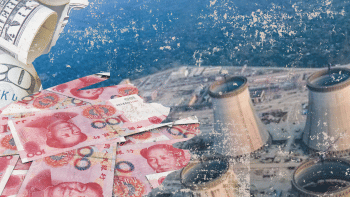

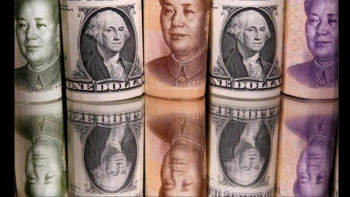


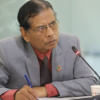
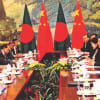

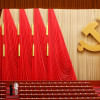



Comments